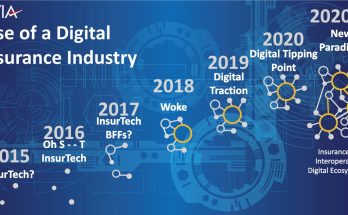Anticipating tomorrow’s trends isn’t about chasing the latest buzz—it’s about understanding the deeper shifts that shape how people live, work, and interact with businesses. The future doesn’t arrive all at once; it unfolds gradually, often in subtle patterns that reward those who pay close attention. For business leaders, the challenge is not just to spot these changes but to interpret them in ways that align with their mission and unlock new opportunities. What’s next for your business depends less on reacting to hype and more on cultivating the foresight to evolve with purpose.
One of the most significant shifts underway is the redefinition of customer expectations. People are no longer satisfied with transactional relationships. They want experiences that feel personal, values that resonate, and brands that behave like partners rather than vendors. This means businesses must move beyond product features and start thinking about emotional engagement. A company that sells fitness gear, for example, might find greater traction by building a community around wellness, offering content, support, and shared goals. The product becomes part of a larger narrative, and that narrative is what drives loyalty.
Technology continues to reshape the landscape, but the emphasis is shifting from novelty to utility. Artificial intelligence, automation, and data analytics are no longer fringe concepts—they’re foundational tools. The businesses that thrive will be those that use these technologies not just to optimize operations but to enhance human connection. A customer service platform powered by AI can resolve issues faster, but if it’s designed with empathy and transparency, it also builds trust. The trend isn’t just about being more efficient—it’s about being more thoughtful. Technology should serve the customer, not replace the relationship.
Sustainability is no longer a niche concern—it’s becoming a baseline expectation. Consumers, investors, and regulators are all demanding greater accountability, and businesses that ignore this shift do so at their own peril. But sustainability isn’t just about compliance or optics. It’s a chance to innovate. Companies that rethink their supply chains, reduce waste, or invest in circular models often discover new efficiencies and brand differentiation. A fashion label that offers repair services or upcycling options isn’t just reducing its footprint—it’s telling a story about care and longevity. That story resonates in a world increasingly aware of its environmental impact.
Work itself is evolving, and with it, the structure of organizations. Remote and hybrid models have moved from temporary fixes to permanent features. This shift requires more than logistical adjustments—it demands cultural transformation. Businesses must learn to foster connection, collaboration, and accountability across distances. Leaders need to be more intentional in how they communicate, support, and develop their teams. A company that invests in asynchronous tools, flexible schedules, and inclusive practices isn’t just adapting—it’s creating a workplace that reflects the realities of modern life. That adaptability becomes a competitive edge.
Another emerging trend is the rise of micro-entrepreneurship and decentralized innovation. Platforms that enable individuals to create, sell, and scale their own offerings are empowering a new wave of creators. For established businesses, this presents both a challenge and an opportunity. The challenge lies in competing with agile, niche players who can move quickly and connect deeply with specific audiences. The opportunity lies in collaboration. Partnering with creators, curating their work, or learning from their agility can inject fresh energy into traditional models. A food brand that features local chefs or a media company that amplifies independent voices isn’t just staying relevant—it’s expanding its ecosystem.
Trust is becoming a central currency in business, and transparency is its foundation. In an age of misinformation and skepticism, people gravitate toward brands that are clear, honest, and consistent. This means being upfront about pricing, policies, and practices. It means owning mistakes and making things right. A business that communicates openly, even when the news isn’t perfect, builds credibility. That credibility is hard to earn and easy to lose, but it’s what sustains relationships over time. The trend isn’t toward perfection—it’s toward authenticity.
Looking ahead, personalization will continue to evolve, but with a greater emphasis on consent and ethics. Customers want tailored experiences, but they also want control over their data. Businesses that respect privacy, offer meaningful choices, and explain how personalization works will stand out. A streaming service that recommends content based on viewing habits but also allows users to adjust preferences is offering both relevance and respect. That balance is increasingly important as digital experiences become more immersive and data-driven.
Ultimately, what’s next for your business depends on your ability to listen, adapt, and lead with intention. Trends are signals, not instructions. They point to possibilities, but it’s up to you to decide which ones align with your values and vision. The businesses that succeed in tomorrow’s landscape won’t be those that chase every new idea—they’ll be the ones that choose wisely, execute thoughtfully, and stay grounded in what makes them unique. Growth will come not from reacting, but from responding with clarity and purpose. And in that response lies the future.



